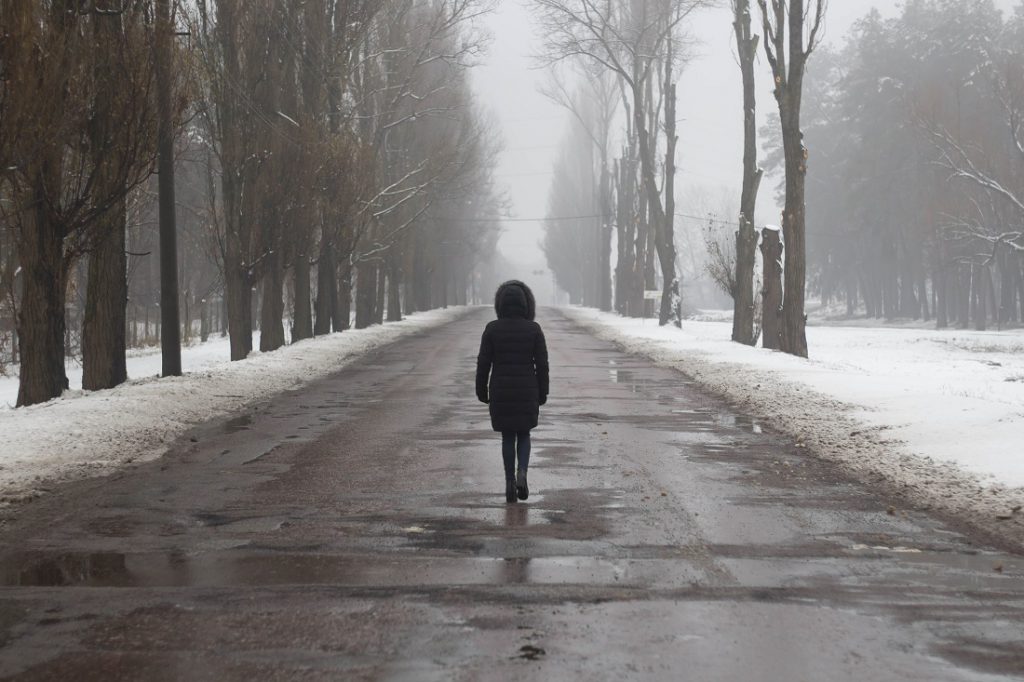December 10: Every Little Thing is Going to Be Okay
December 10: Every Little Thing is Going to Be Okay

Excerpted from The Greatest Gift by Ann Voskamp
There are Advent moments when you’d like nothing more than to order a Christmas miracle.
The one you need when it feels like no one really sees you. No one sees how alone you really feel. How overwhelmed by the work and unappreciated by the people. No one sees that you just want someone to cup your face and look into your eyes and say your name from somewhere deep inside, like a calling home, like a belonging—like a holding that has you around all the fragile places and won’t leave you.
Some seasons are Naomi times. You ventured out with those hopes, full—and you feel you’ve been brought back empty . . . disillusioned, withered dry.
In some seasons, for all their gloss and glitz, it can be achingly hard to find gifts, and days can feel like fists.
Naomi—she goes home bitter. Orpah goes home to begin over. And Ruth goes on believing she will find home. Maybe sometimes the miracle begins by growing not in bitterness but in faithfulness—because, for all its supposed sophistication, cynicism is simplistic. In a fallen world, how profound is it to see the cracks? The radicals and the reflective, the Ruths and the revolutionaries—they are the ones on the road, in the fields, on the wall, pointing to the dawn of the new Kingdom coming, pointing to the light that breaks through all things broken, pointing to redemption always rising and the Advent coming again. Brilliant people don’t deny the dark; they are the ones who never stop looking for His light in everything.
Ruth, who had given up her freedom for Naomi’s future, who had gone with her back to that little town of Bethlehem—the outsider grafted in—she looks for His light, and she sees it: “Love is the face at the center of our universe. A sacred Smile; Holiness ready to die for intimacy.”14 But this can come too: expectations can come steal the gifts. Naomi, who has been given the gift of Ruth’s sacrifice, sympathy, service—she’s struggling to see it, to see the gift of the love still all around her. With her Ruth right there, clinging to her, she grieves: “I went away full, but the LORD has brought me home empty.” It happens. When we have an agenda for God, we can’t see the gifts from God.
There are no brazen miracles to be seen in the entire book of Ruth.
No angels appear stage left, no visions shatter the night, no heavenly hosts are overhead.
Much like the corner of Wallace and Main in the middle of December. Or like the annual family gathering at Aunt Muriel’s with the embattled in-laws, the opinionated out-laws, the disinterested in-betweens. Or like your living room, your calendar, your day planner—all the mundane middle that just keeps pressing you in, stretching you out, deadening you slowly numb.
You know, like how Ruth just happens to end up in Bethlehem. Happens to end up gleaning in the field of about the only man who could be their kinsman-redeemer, Boaz—about the only one who has the right to buy back their lost ancestral land. Who just happens to meet her, hear her story, feel moved to offer to help. And she just happens to find him sleeping, follows her mother-in-law’s instructions to ask him to spread his cloak over her—literally to “spread your wing over me,” to save her from being preyed upon.
In Hebrew culture, she just proposed, asked him to take her—to marry her. She just said, “I want you to be my redeemer.” And he just happens to say yes. And buys back the family land and redeems her and takes her and marries her, and together they happen to have a son. Named Obed. Which happens to mean “servant”—what union with your Redeemer always makes you. And Obed happens to have a son named Jesse, who has a son named David, who becomes the greatest king Israel has ever known.
Until David’s line brings forth a King . . . named Jesus.
“The Holy Ghost thought fit to take particular notice of that marriage of Boaz with Ruth, whence sprang the Saviour of the world,” writes Jonathan Edwards. “We may often observe it, that the Holy Spirit who indited the Scriptures, often takes notice of little things, or minute occurrences, that do but remotely relate to Jesus Christ.”15
Every little thing is going to be okay because God is working good through every little thing.
All that’s happening is happening to make miracles. The mundane is what’s making miracles.
God comes through mangers. The mundane holds miracles. Every little thing is going to be okay—you have a Kinsman-Redeemer who takes you and is redeeming everything. The miracle of gifts is always unfolding under the impossibles.
“Joys are always on their way to us,” assures Amy Carmichael. “They are always traveling to us through the darkness of the night. There is never a night when they are not coming.”16
The miracle of gifts . . . is never not coming.
When your Father’s hand isn’t readily apparent, it’s only because He’s readying gifts. Gifts always come out of the unseen and hidden places.
It’s a miracle itself—how you don’t have to order a Christmas miracle. The miracle of Love is happening all around you.
Christ coming freely, willingly, now—coming unseen into everything.
14. Ann Voskamp, One Thousand Gifts: A Dare to Live Fully Right Where You Are (Grand Rapids, MI: Zondervan, 2010), 15.
15. Jonathan Edwards, The Works of Jonathan Edwards, vol. 1 (New York: Daniel Appleton and Co., 1835), 664.
16. Amy Carmichael, Edges of His Ways: Daily Devotional Notes (Fort Washington, PA: CLC Publications, 2011), 82.




